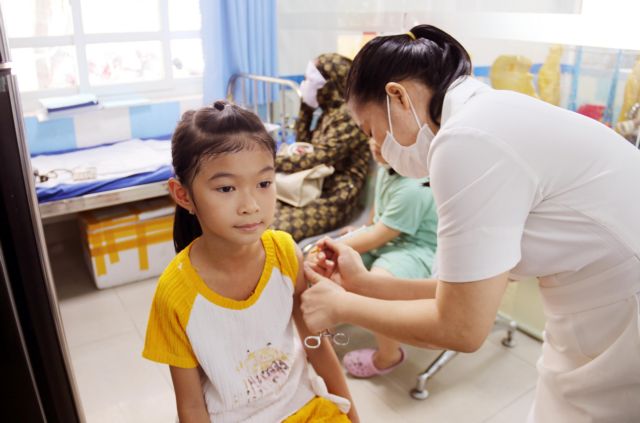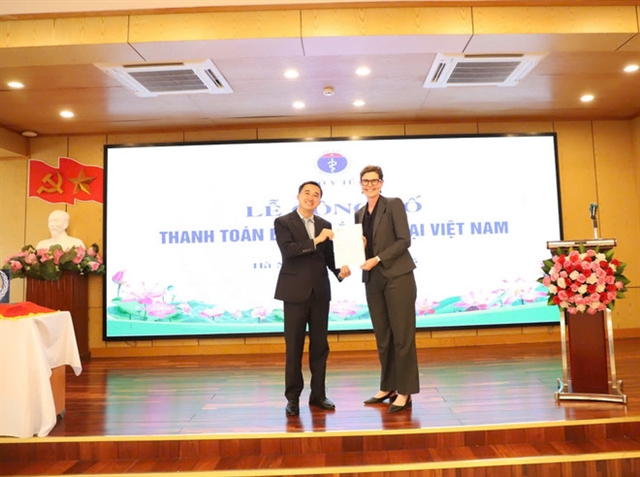 Society
Society

 |
| Angela Pratt (right), WHO Representative in Việt Nam, presents the certificate of trachoma eradication in Việt Nam to Deputy Minister of Health Trần Văn Thuấn. — VNA/VNS Photo |
HÀ NỘI — Việt Nam was officially recognised by the World Health Organisation (WHO) as having eliminated trachoma nationwide, the Ministry of Health declared April 14.
This achievement is the results after more than 70 years of persistent efforts to diagnose and treat trachoma and expel the once dangerous infectious disease from the community.
The recognition was based on international evaluation criteria at the 75th session of the WHO Western Pacific Region held in the Philippines on October 21 last year.
This is an important milestone for Việt Nam in general and the health sector in particular.
Deputy Minister of Health Trần Văn Thuấn emphasised that trachoma has long been a major challenge for the health sector in countries with difficult socio-economic conditions.
WHO data showed that by 2023, the number of people at risk of trachoma worldwide had decreased by seven per cent, from 125 million in 2022 to about 115.7 million.
The majority of them still live in areas with active trachoma prevalence of five per cent or more – mainly areas with limited environmental sanitation and access to health services.
In addition, the total global burden of trachoma-related entropion – the most severe complication of trachoma – has also decreased from 1.7 million cases in 2022 to approximately 1.5 million cases in 2023. These are very encouraging results in the global effort to prevent trachoma.
Deputy Minister Thuấn said, "To date, 21 countries in the world have been officially recognised by WHO as having eliminated trachoma as a public health issue. We are proud that Việt Nam has been honoured to become one of the countries achieving this important result."
He noted that trachoma elimination did not mean that we can now stop being cautious. Instead, the task in the coming time is to continue to maintain the achievements in a sustainable manner.
Relevant units need to strengthen the monitoring, detection and management in the community.
Health agencies must raise people's awareness of personal hygiene, environmental sanitation, and trachoma prevention. Besides, they should ensure resources and financial mechanisms for prevention activities, including payment for entropion surgery through health insurance in accordance with current regulations and strictly implement periodic report to the Central Eye Hospital and State management agencies.
Recognising the achievement, Saia Ma'u Piukala, WHO Regional Director for the Western Pacific, said that trachoma elimination in Việt Nam was a testament to the commitment of the Government, health workers and communities across the country.
This was a prime example of how targeted interventions, strong partnerships and sustained efforts can bring about real change in people's health.
Deputy Minister Thuấn sincerely thanked WHO and international organisations in Việt Nam for accompanying and providing technical and financial support in localities across the country, especially remote provinces.
He thanked medical staff from the central to grassroots levels who have devoted themselves and made efforts to overcome difficulties to complete their task.
Deputy Minister Thuấn also highly appreciated the role of the Central Eye Hospital as the professional focal point in the trachoma control and eradication programme in Việt Nam, from supervision, training, professional guidance, to data collection, management and close coordination with localities. — VNS




